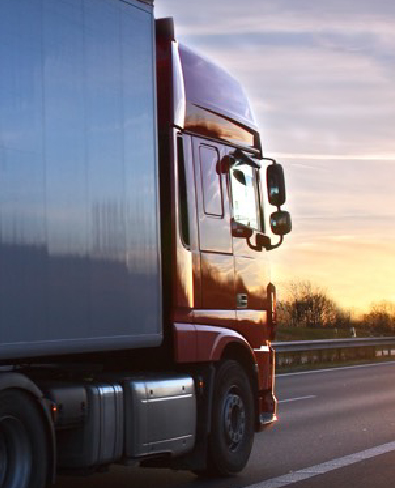
Renewable fuels for heavy-duty transport
Renewable fuels for heavy-duty transport
The industry is committed to these fuels made from organic waste, which are compatible with today's truck engines.

The challenge of a key sector for the Spanish economy
How to reduce the emissions of 300,000 trucks?
Apart from electrification and hydrogen, carriers consider it necessary to have other alternatives to decarbonize heavy-duty road freight transport.


Road transport is a vital sector for the economy and the functioning of the European Union's internal market. According to Eurostat data, 77% of the goods circulating in Europe are transported by road. The dependence in Spain is much higher and this percentage is around 96%, making our country more vulnerable to the economic impact of the regulation of a highly fragmented sector which, according to data from the Spanish Association of Automobile and Truck Manufacturers (ANFAC), generates 4.8% of the national GDP and directly employs some 600,000 people.
The more than two million companies involved in transport in Europe are facing the biggest transformation in their history: decarbonizing the activities of a sector that generates 6% of the continent's CO2 emissions. This is a major challenge for these companies, especially after the European Union's Council of Ministers approved in May the new CO2 emissions regulation for heavy-duty vehicles, which tightens reduction targets for new trucks and buses to 45% for the period 2030-2034, 65% for 2035-2039, and 90% in 2040.
To meet these targets, the Regulation stipulates that new vehicles being manufactured must reduce their tailpipe CO₂ emissions, which, in practice, makes both battery electric drives and hydrogen engines, two technologies under development that have yet to prove their effectiveness over long distances, the two key alternatives for decarbonizing European heavy-duty road transport.
Emissions reduction in heavy-duty transport

Renewable fuels for heavy-duty transport
The industry is committed to these fuels made from organic waste, which are compatible with today's truck engines.

This is how heavy-duty trucks reduce their CO2 emissions
The transport sector develops several initiatives to reduce the impact of its activity.
It is essential for there to be a technological neutrality policy and that from there each manufacturer develops, researches, and brings to the market different products that may be viable and equally competitive." José María Quijano, general secretary of CETM
In Spain, the regulation has generated doubts in the sector. During its processing, fifty companies and associations from the automotive, transport, and fuels production sectors signed a manifesto asking the EU "to diversify the alternatives available and not limit the development of decarbonization technologies that facilitate and accelerate the reduction of emissions." "More than challenges, the industry is facing a great uncertainty in the face of the amount of national and European legislation that puts on the table the development of certain energies that today aren't viable," José María Quijano explains, general secretary of the Spanish Confederation of Freight Transport (CETM), of which 31,000 companies are part of that have 129,000 commercial vehicles. "If we have to go to electrification, neither the fleet, nor the energy, nor the system are ready (...). For us, it is essential for there to be a technological neutrality policy and that from there each manufacturer develops, researches, and brings to the market different products that may be viable and equally competitive."
Transport operators recognize that electrification, and later hydrogen, will play "an important role" to reduce their CO2 emissions, but also that their implementation will take time and will have a high financial cost. Because of this, they consider it necessary "to have various alternatives," among those that are committed to carbon-neutral fuels, which they consider "a complementary solution that can contribute in an effective, affordable, and quick manner to achieving decarbonization targets."

Heavy-duty transport, a vital sector for the economy
109,614
companies
in the road transport sector
600,000
direct employees
dedicated to road transport
4.8%
of the national GDP
generated by the sector
16.750
billion euros
turnover
In the last few years, two main types of renewable fuels have been developed: advanced biofuels, which are manufactured from organic waste, and synthetic fuels or e-fuels, which use renewable hydrogen and CO2 captured from the atmosphere as raw materials. Both are compatible with today's combustion engines, which are used by more than 90% of heavy-duty trucks that circulate around Europe and, in the case of biofuels, they are already available on the market, so "they can contribute to decarbonization immediately," according to transport operators.
For now, the new Regulation has left a door open to their possible use in the future. The European Commission has committed to making a report in 2027 to assess the role of various technologies in the decarbonization of road freight transport, which include carbon-neutral fuels. By that date, a methodology must be in place to check when a truck's combustion engine is running on this type of fuel, with a view to permitting its registration.
Related content